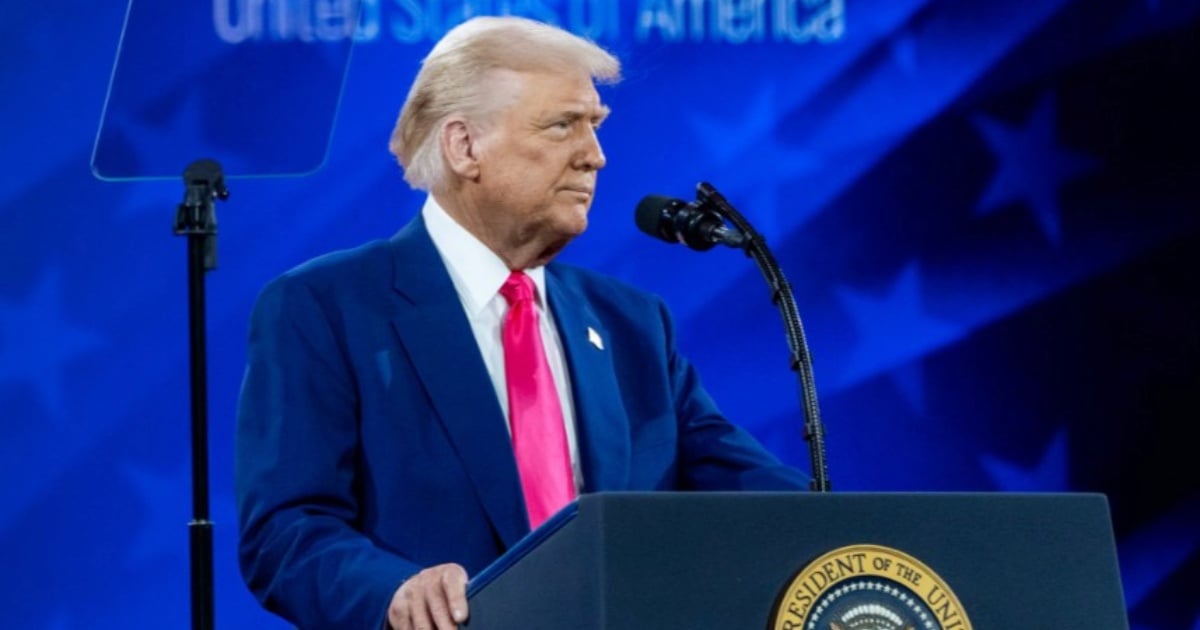A federal judge in Seattle has put a stop to President Donald Trump's attempt to suspend the refugee admission program in the United States. The executive order, which aimed to indefinitely halt the resettlement of refugees, was deemed unlawful by Judge Jamal Whitehead, who argued that the president's action overstepped his authority and violated Congressional intent.
The Context of the Lawsuit
Since re-entering the White House, Trump has rolled out a series of executive orders to toughen immigration policies. Among these was the suspension of the refugee resettlement program under the claim that the country is facing “unprecedented migration levels” and lacks the capacity to accommodate a substantial number of new arrivals, particularly refugees. In addition to banning refugee entry, his administration also began cutting funding to aid agencies responsible for managing refugee resettlement and integration within the country.
The refugee admission program, established by Congress in 1980, has facilitated the entry of over three million people fleeing war, persecution, or natural disasters. This legal migration process is distinct from asylum, which is granted to individuals already in the U.S. seeking protection. Despite bipartisan support historically, the program has become a contentious issue in recent years. During his first term, Trump significantly reduced the annual number of admitted refugees.
Currently, around 600,000 individuals worldwide are waiting for resettlement in the U.S. However, the program's suspension left thousands in uncertainty, including those already approved by the U.S. government.
The Plaintiffs and Their Arguments
The lawsuit was filed in Seattle by refugees directly impacted by the suspension, along with major humanitarian organizations including the International Refugee Assistance Project, Church World Service, HIAS, and Lutheran Community Services Northwest. These organizations claimed Trump's policy forced them to lay off employees and scale back operations, severely affecting refugees already in the resettlement process.
David Duea, director of Lutheran Community Services Northwest, criticized the situation. “We resettled individuals days before the inauguration, and now they are left without benefits. This includes rent, school enrollment assistance for children, and case management. It was an inhumane act,” he stated, according to AP.
The Department of Justice argued that Trump's executive order was based on a law allowing the president to deny entry to foreigners whose admission “would be detrimental to U.S. interests.” However, Judge Whitehead found that the president's action effectively nullified Congressional intent that established the program in 1980.
Judge Whitehead's Ruling
Judge Whitehead dismissed the government's arguments and ruled that the suspension violated both the law and the principles of separation of powers. In his preliminary ruling, he noted, “The president has considerable discretion [...] to suspend refugee admissions, but this authority is not limitless.” The judge emphasized the humanitarian implications of the executive order, citing testimonies from refugees stranded in dangerous areas and families separated indefinitely.
“I have refugees who sold everything before embarking on a journey that was canceled. I have spouses and children separated from their families in the U.S., and resettlement agencies that have laid off hundreds of employees,” he stated.
Outside the courthouse, organizations and activists celebrated the judicial decision. Tshishiku Henry, a refugee resettled in the U.S. in 2018 after fleeing war in the Democratic Republic of the Congo, expressed what it meant to be admitted as a refugee. “It was a lifeline. They not only offered us safety but gave us back our future,” he noted.
The Trump administration, however, has announced plans to appeal the decision to the Ninth Circuit Court of Appeals. If the court or the Supreme Court grants a stay, the executive order could be reinstated while the litigation continues. Nevertheless, if the ruling is upheld, the refugee admission program must temporarily resume.
The debate over the refugee program highlights deep divisions surrounding U.S. immigration policy. As the case progresses through the judicial system, the fate of thousands seeking safety and stability in the United States remains uncertain.
Understanding the Impact of the Refugee Program Suspension
What was the basis for Judge Whitehead's ruling against the suspension?
Judge Whitehead ruled that the suspension exceeded the president's authority and violated Congressional intent, emphasizing the humanitarian consequences and separation of powers principles.
How has the refugee admission program historically been supported?
Established by Congress in 1980, the program has traditionally received bipartisan backing, facilitating the entry of over three million refugees escaping war, persecution, or natural disasters.
What are the potential next steps following the judge's decision?
The Trump administration plans to appeal the ruling. If a stay is granted by the appellate court or Supreme Court, the executive order may be temporarily reinstated while litigation proceeds.
